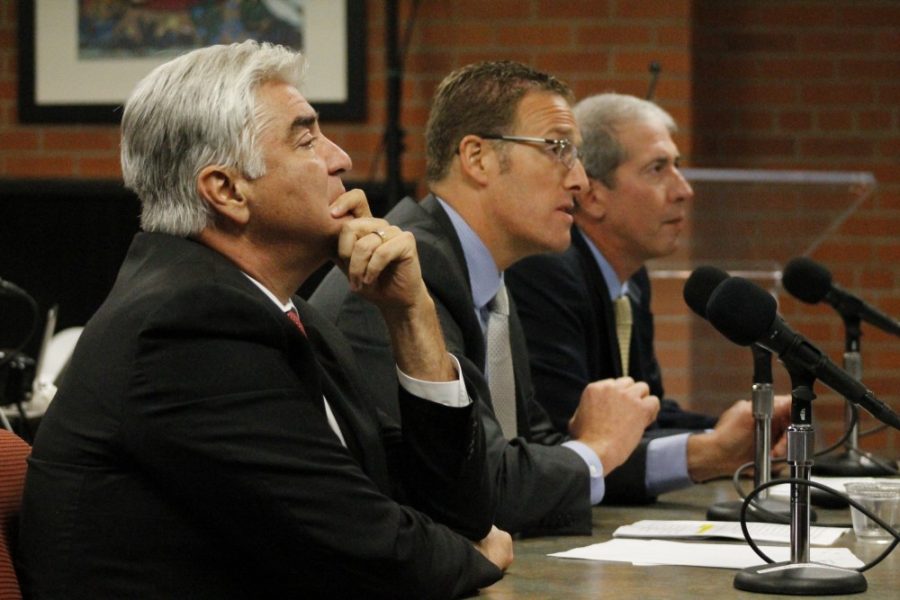The Arizona Board of Regents Health Affairs Committee held their second meeting to address concerns regarding administration and operations at the UA’s two medical colleges.
Last fall the Liaison Committee on Medical Education issued a warning to the to the University of Arizona College of Medicine-Phoenix campus in regards to flawed administrative practices.
After addressing their concerns, the Phoenix campus moved from preliminary to provisional accreditation status in February.
Earlier this year, the Arizona Medical Association instructed the board to conduct an investigation into the governing practices at the Phoenix campus. The call for an investigation came after six top administrators, including Dean Stuart Flynn, resigned their positions at the campus.
Board President Eileen Klein opened the Friday meeting with a statement that explained the current investigation and detailed the issues the regents hope to tackle.
“There are numerous questions about leadership transitions, about governments, about funding, about the workplace culture — in particular about the transition from UAHN to Banner Health,” Klein said. “In the past several days, additional questions have come to light. These questions and claims are far more troubling. Information has been brought forward that raises questions for us about the ethics of our leaders, use of public monies, the accuracy of information and workplace culture and treatment of our employees. The board and the university leaders will go beyond these public hearings and take additional actions based on what we have learned.”
Senior Vice President of Health Sciences Dr. Joe “Skip” Garcia kicked off the meeting with updates on the status of both UA colleges of medicine.
Garcia emphasized the beneficial aspects of the Banner merger and explained the Phoenix campus’s progress with hiring a new dean.
“The Banner affiliation has now stabilized that education mission for the college,” Garcia said. “It also has had the impact of providing new funds flow that weren’t previously available to the college.”
Garcia said the new UA Cancer Center at Dignity Health St. Joseph’s Hospital and Medical Center is “moving forward.”
Garcia added that since being appointed interim dean, Dr. Kenneth Ramos has recruited a number of high quality replacements.
“We have identified a search committee comprised of individuals across Phoenix and Tucson,” Garcia said. “Six finalists have been identified and will be visiting the campus this August and September for interviews.”
Charles Cairns, dean of UA College of Medicine-Tucson said the college is thriving in his presentation to the regents.
Cairns said it’s been a record year, highlighting that the college’s most recent class is comprised of 35 percent minority students.
After Garcia and Cairns gave their presentations, Regent Rick Myers provided the reasons of why so many members of faculty left the Phoenix medical school.
The merger, which is a 30 year agreement, has provided the college with an academic support package, an alternative dean’s tax and an academic enhancement fund according to Jonen.
Mike Jonen, senior associate vice president of health sciences, said the academic enhancement fund would promise $20 million per year to the College of Medicine in Tucson for the 30 year agreement and if there is any money left over after the agreement, the remainder of the fund would go to the university.
After the call to the audience where members of the medical and local community spoke, Klein thanked the board and public for attending and sharing their opinions and recommendations.
“I appreciate the regents today who offered some ideas about how the university leaders can help create action plans to help address some of the concerns, better communicate our plans and create this exciting vision for the state,” Klein said. “We’re also going to take a look to see what questions remain unanswered and make sure that the board takes whatever action it needs to, including holding other hearings if that’s necessary.”
Follow Lauren Renteria on Twitter.









